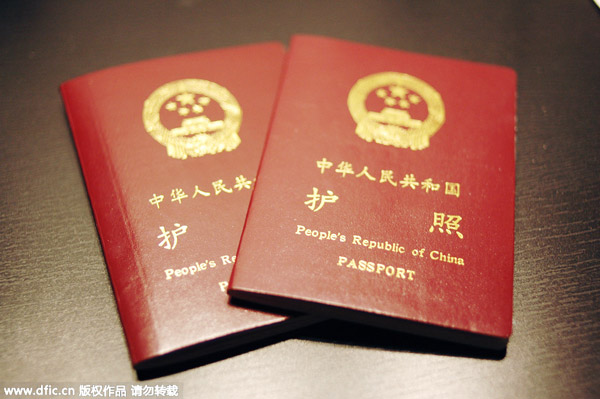US charges 15 Chinese nationals in college exam fraud scheme
Updated: 2015-05-29 09:47
(Agencies)
|
|||||||||||
 |
|
Chinese passports. [Photo/IC] |
WASHINGTON - Fifteen Chinese nationals have been charged with developing a fraud scheme in which they paid imposters to take entrance exams, including the SAT, and gained acceptance to elite American colleges and universities, the US Department of Justice said on Thursday.
Conspirators were paid up to $6,000 each time they used counterfeit Chinese passports to trick test administrators into thinking they were the person who would benefit from the test score, a federal grand jury charged.
Between 2011 and 2015, mainly in western Pennsylvania, the defendants paid imposters to take the SAT - previously known as the Scholastic Aptitude Test - the Test of English as a Foreign Language (TOEFL) and the Graduate Record Examinations (GRE), under false names, according to the Justice Department statement.
Both the test takers and the people they claimed to be are being charged.
US Attorney for the Western District of Pennsylvania David Hickton said the beneficiaries secured admission to undergraduate and graduate schools that are "among our finest educational institutions".
Hickton declined to name the specific schools, but said that they are located all over the United States. The students also cheated student visa requirements by using counterfeit Chinese passports, he said.
The defendants are men and women between the ages of 19 and 26 currently living in several cities where universities are located, including Blacksburg, Virginia, home of Virginia Tech and Boston, Massachusetts, home to dozens of colleges and several elite schools.
"These students were not only cheating their way into the university, they were also cheating their way through our nation's immigration system," said John Kelleghan, Special Agent in Charge for Homeland Security Investigations of Philadelphia.
If convicted, the defendants face a maximum sentence of 20 years in prison, a fine of $250,000 or both for each count of wire and mail fraud. Conspiracy charges carry an additional five-year maximum sentence.
Related Stories
Chinese woman charged with immigration fraud remains in US jail 2015-04-01 06:08
Fraud suspect extradited to China from Russia 2015-02-05 22:03
South Dakota college band off to China 2015-01-06 12:01
Illinois university signs agreements with Chinese college 2014-12-08 10:24
Today's Top News
British Queen makes references to China in keynote speech
Bayern cashes in on Chinese fans' frenzy for European soccer
German rail giant mulls buying trains from China
Blair to resign as Middle East Quartet envoy
London stock exchange takes steps to include China A shares
China calls for durable settlement of Kosovo issue
China urges BRICS to unite for promoting multi-lateralism
New way to enjoy movie in Berlin
Hot Topics
Lunar probe , China growth forecasts, Emission rules get tougher, China seen through 'colored lens', International board,
Editor's Picks

|

|

|

|

|

|






